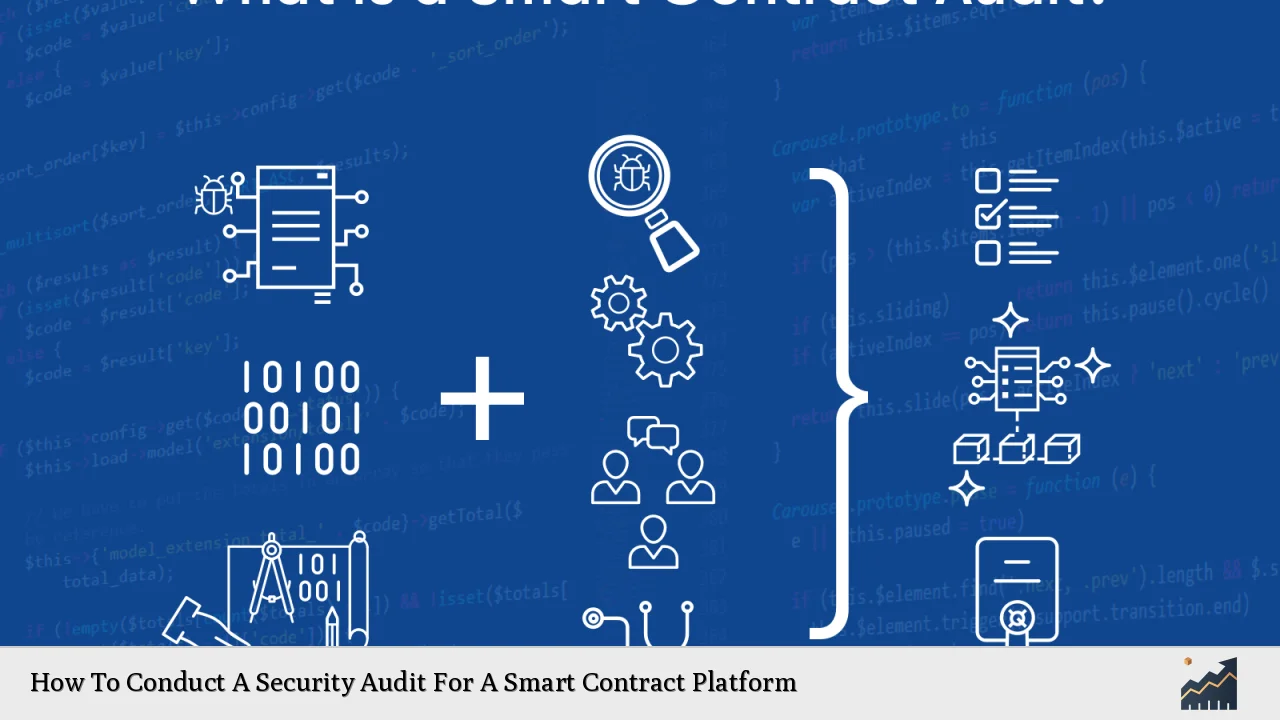Conducting a security audit for a smart contract platform is an essential process that ensures the integrity, security, and functionality of smart contracts. As these contracts often handle significant financial transactions and sensitive data, the need for rigorous auditing has become paramount. This article provides a comprehensive guide on conducting a security audit, addressing market trends, implementation strategies, risk considerations, regulatory aspects, and future outlook.
| Key Concept | Description/Impact |
|---|---|
| Smart Contract Audits | Audits are critical for identifying vulnerabilities in smart contracts, ensuring they function as intended without security flaws. |
| Automated vs. Manual Auditing | Combining automated tools with manual reviews enhances the detection of vulnerabilities and ensures thorough code examination. |
| Market Growth | The smart contract market is projected to grow significantly, with estimates suggesting it will reach USD 1.9 billion by 2034 at a CAGR of 23.8%. |
| Common Vulnerabilities | Identifying vulnerabilities such as reentrancy attacks and integer overflows is crucial to prevent exploits that could lead to significant financial losses. |
Market Analysis and Trends
The smart contract market is experiencing rapid growth, driven by the increasing adoption of blockchain technologies across various sectors including finance, healthcare, and supply chain management. According to recent reports, the global smart contracts market was valued at approximately USD 315.1 million in 2023 and is expected to reach USD 1,460.3 million by 2030, reflecting a CAGR of 24.2% during this period.
This growth is largely attributed to:
- Increased Demand for Automation: Businesses are leveraging smart contracts for automating processes without intermediaries, enhancing efficiency and reducing costs.
- Rise of Decentralized Finance (DeFi): The DeFi sector relies heavily on smart contracts to facilitate transactions securely and transparently.
- Regulatory Developments: As regulations around blockchain technology evolve, companies are prioritizing audits to ensure compliance and build trust with users.
Implementation Strategies
To effectively conduct a security audit for a smart contract platform, follow these strategic steps:
- Define Audit Scope: Clearly outline what aspects of the smart contract will be audited, including specific functionalities and integrations.
- Gather Documentation: Collect all relevant documentation including design specifications, user requirements, and existing security measures.
- Code Freeze: Implement a code freeze to prevent any changes during the audit process that could affect its integrity.
- Automated Testing: Utilize automated tools to perform initial scans for common vulnerabilities such as reentrancy attacks or integer overflow issues.
- Manual Review: Conduct a thorough manual review of the code to identify logic errors or vulnerabilities that automated tools may miss.
- Remediation: Address any identified issues by collaborating with developers to rectify vulnerabilities before deployment.
- Final Reporting: Prepare a detailed audit report summarizing findings, remediation steps taken, and recommendations for future audits.
Risk Considerations
Conducting a security audit involves understanding various risks associated with smart contracts:
- Financial Losses: Vulnerabilities can lead to significant financial losses; over $5 billion has been lost in hacks related to DeFi projects due to inadequate auditing.
- Reputational Damage: A failure in security can severely damage a project’s reputation and user trust.
- Regulatory Non-compliance: Non-compliance with emerging regulations can lead to legal repercussions and financial penalties.
To mitigate these risks:
- Regularly update auditing processes to adapt to new threats.
- Engage with third-party auditors who specialize in blockchain technology for an unbiased review.
Regulatory Aspects
As the blockchain ecosystem matures, regulatory bodies are increasingly scrutinizing smart contracts:
- Compliance Requirements: Organizations must ensure their smart contracts comply with local regulations regarding data protection and financial transactions.
- Audit Standards: While there are no universal standards for smart contract audits yet, best practices are evolving through industry consensus among leading auditing firms.
- Transparency Obligations: Projects must maintain transparency about their auditing processes and results to foster trust among users and investors.
Future Outlook
The future of smart contract audits looks promising as technological advancements continue:
- Integration of AI Tools: The use of artificial intelligence in auditing processes will enhance the accuracy and efficiency of vulnerability detection.
- Increased Demand for Audits: As more companies adopt blockchain technology, the demand for comprehensive audits will rise significantly.
- Emerging Standards: The development of standardized frameworks for auditing will likely emerge as the industry matures, improving consistency across audits.
By prioritizing security audits as part of their development lifecycle, organizations can not only protect their assets but also enhance user confidence in their platforms.
Frequently Asked Questions About How To Conduct A Security Audit For A Smart Contract Platform
- What is a smart contract audit?
A smart contract audit is an evaluation process that examines the code of a smart contract for vulnerabilities and ensures it functions as intended. - Why are audits necessary?
Audits are crucial because they help identify potential security flaws that could be exploited by malicious actors, ensuring the safety of user funds. - How often should audits be conducted?
Audits should be conducted before deployment and after any significant updates or changes to the code. - What are common vulnerabilities found in audits?
Common vulnerabilities include reentrancy attacks, integer overflows/underflows, and improper access controls. - Can I perform an audit myself?
While it’s possible to conduct an internal audit, engaging professional auditors is recommended for thoroughness and objectivity. - What tools are used in smart contract audits?
Tools like MythX, CertiK, and Oyente are commonly used for automated vulnerability detection during audits. - What should be included in an audit report?
An audit report should detail identified vulnerabilities, remediation steps taken, overall assessment of security posture, and recommendations for future improvements. - How do audits impact investor confidence?
A successful audit can significantly boost investor confidence by demonstrating that a project has taken proactive steps to secure its platform.
Conducting a thorough security audit is essential for any organization utilizing smart contracts. By following best practices and staying informed about market trends and regulatory requirements, businesses can safeguard their operations against potential threats while fostering trust among users and investors.

